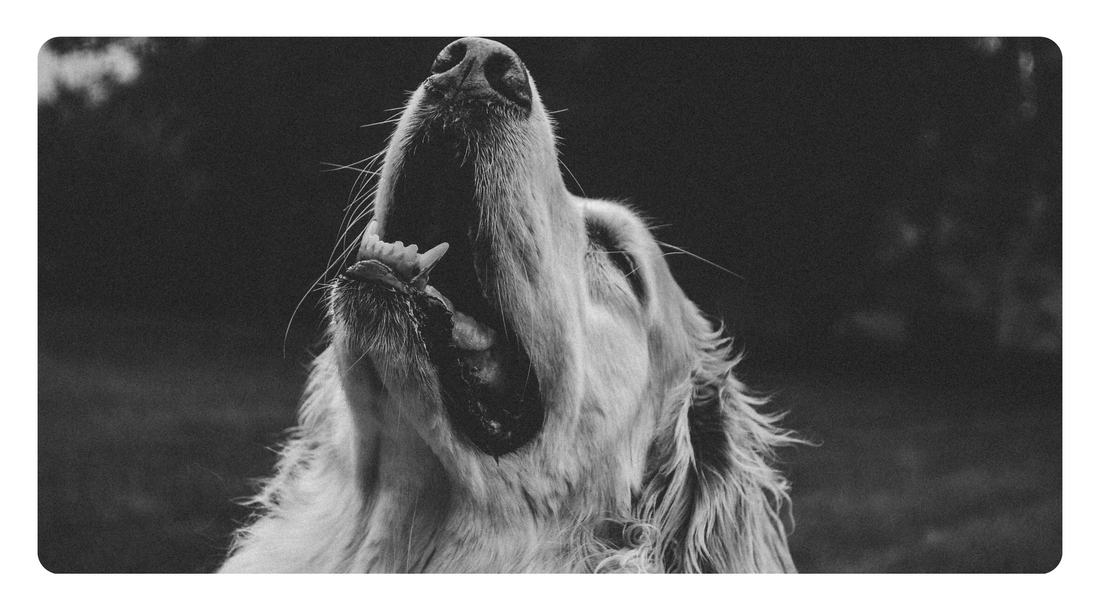As dogs age, it’s not just their joints and energy levels that change—many also experience a decline in cognitive function. Just like people, senior dogs can begin to show signs of confusion, restlessness, disrupted sleep, or increased anxiety. This condition, known as Canine Cognitive Dysfunction (CCD), is similar to dementia or Alzheimer’s in humans and is more common than many pet parents realize. While aging is inevitable, cognitive decline doesn't have to be. With the right holistic support, your dog can maintain their mental sharpness and emotional resilience well into their senior years.
Fortunately, there are natural ways to support brain health and slow cognitive decline. Through species-appropriate nutrition, targeted supplementation, gut and immune system support, sensory stimulation, and toxin reduction, you can help your aging dog feel more like themselves again—curious, connected, and comfortable.
Signs of Cognitive Decline in Dogs
Cognitive changes in dogs can be subtle and gradual, often mistaken for "normal aging." But recognizing these signs early allows you to intervene before the decline worsens.
Common signs include:
-
Disorientation or confusion in familiar environments
-
Increased anxiety or clinginess, especially at night
-
Disrupted sleep-wake cycles (often pacing at night, sleeping more during the day)
-
Pacing, aimless wandering, or circling
-
House training accidents or forgetfulness
-
Decreased interest in toys, play, or interaction
-
Staring at walls, getting “stuck” in corners, or failing to respond to cues
These symptoms may appear gradually but can progress over time. If you notice any of these behaviors, it’s time to begin a brain-supportive plan to preserve your dog’s cognitive function.
1. Feed a Brain-Nourishing Diet
The brain is a hungry organ—and it thrives on high-quality fats, antioxidants, and amino acids. Unfortunately, many senior dog foods are overly processed, high in carbohydrates, and lacking in essential brain nutrients.
Nutritional strategies for brain health:
-
Feed a fresh, species-appropriate diet (raw or gently cooked)
-
Include DHA and EPA-rich fats from wild-caught sardines, anchovies, or krill
-
Add antioxidant-rich foods like blueberries, kale, spinach, broccoli sprouts, and red cabbage
-
Incorporate coconut-derived MCT oil for alternative energy to glucose
-
Support mitochondrial health with CoQ10, acetyl-L-carnitine, and alpha-lipoic acid
-
Add eggs, liver, and other organ meats to supply choline and B vitamins for neurotransmitter function
Avoid starchy fillers, artificial preservatives, rendered meats, and synthetic vitamins, which contribute to inflammation and oxidative stress.
2. Use Targeted Supplements for Cognitive Support
Specific nutraceuticals have been shown to enhance memory, learning, and mood in aging dogs by reducing neuroinflammation, improving nerve signaling, and protecting brain cells from oxidative damage.
Top supplements for cognitive support:
-
Phosphatidylserine: Supports nerve membrane function and communication, and may reduce cortisol (stress hormone)
-
Ginkgo biloba: Improves blood flow to the brain and enhances oxygen delivery
-
Omega-3 fatty acids (EPA and DHA): Critical for brain cell structure and reducing chronic inflammation
-
L-theanine: An amino acid that promotes calm alertness, helpful for dogs with anxiety-related cognitive symptoms
-
Vitamin B-complex: Especially B6, B12, and folate, which are crucial for brain chemistry and cognitive clarity
-
MCT oil: Provides ketones, an efficient and protective energy source for aging brains
-
Lion’s Mane mushroom: Supports neurogenesis and myelin sheath repair
Choose canine-specific supplements from reputable sources with clean, transparent ingredient labels. Rotate or combine supplements based on your dog’s needs.
3. Support Gut Health for a Healthier Brain
The gut-brain axis is a powerful, two-way communication system. A compromised gut (leaky gut, dysbiosis, inflammation) can lead to brain fog, mood issues, and even accelerated cognitive decline. Supporting gut health is essential for protecting the brain.
Gut-friendly strategies:
-
Add spore-based or soil-based probiotics to promote microbial diversity
-
Use fermented veggies in small, well-tolerated amounts to introduce natural probiotics
-
Feed prebiotic fiber from foods like dandelion root, burdock root, slippery elm, and chicory root
-
Include digestive enzymes to enhance nutrient absorption, especially in dogs with pancreatic insufficiency
-
Avoid gut-disruptors like glyphosate (non-organic food), unnecessary antibiotics, and chlorinated water
Healthy gut flora produce neurotransmitters like serotonin and GABA, regulate immune function, and act as a natural line of defense for the brain.
4. Provide Mental Stimulation and Routine
Mental enrichment is critical for cognitive longevity. Just like muscles, the brain needs regular exercise to stay strong. A bored brain is more prone to degeneration.
Ways to engage your senior dog mentally:
-
Practice short, positive training sessions (like touch, hand targeting, or trick recall)
-
Offer food puzzles, snuffle mats, and scent-based games
-
Rotate toys and environments to create novelty without stress
-
Go for gentle sniff walks or car rides to new, low-stress places
-
Use therapeutic touch, massage, or acupressure to reduce anxiety and improve blood flow
-
Create a daily routine for feeding, walking, and rest to provide structure and predictability
Maintaining engagement and emotional connection goes a long way toward supporting mood, memory, and confidence in senior dogs.
5. Reduce Environmental Toxins
Toxic load matters. The brain is extremely sensitive to oxidative damage, and dogs are constantly exposed to environmental toxins—many of which have been linked to neurodegenerative disease.
Simple detox practices:
-
Use filtered water and avoid exposure to fluoride, chlorine, and heavy metals
-
Feed organic food when possible to avoid glyphosate and pesticide residues
-
Replace synthetic air fresheners, dryer sheets, and harsh cleaners with non-toxic alternatives
-
Switch to natural flea/tick prevention and skip unnecessary vaccines or medications
-
Use detox binders (like bentonite clay or chlorella) during yeast or toxin die-off
A cleaner, less inflammatory environment helps relieve pressure on the liver and brain, allowing natural detoxification and healing processes to function more efficiently.
Final Thoughts
Cognitive decline doesn’t mean the end of vitality or connection. With a thoughtful, integrative approach that focuses on whole-body health—through nutrition, targeted supplementation, gut repair, mental stimulation, and detoxification—you can help your senior dog remain alert, connected, and emotionally balanced.
At The Organic Dog Shop, we offer a handpicked collection of brain-boosting supplements, antioxidant-rich foods, and gut-healing tools that support your dog’s cognitive and emotional well-being. Explore our senior dog wellness collection today and give your dog the vibrant, engaged golden years they deserve.

